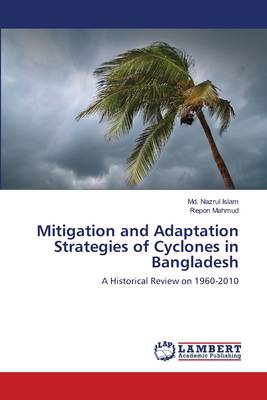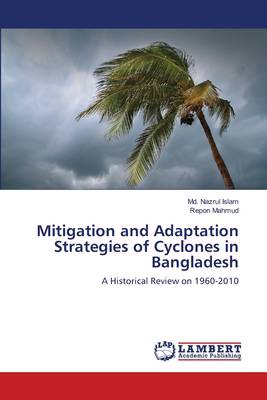
Bedankt voor het vertrouwen het afgelopen jaar! Om jou te bedanken bieden we GRATIS verzending (in België) aan op alles gedurende de hele maand januari.
- Afhalen na 1 uur in een winkel met voorraad
- In januari gratis thuislevering in België
- Ruim aanbod met 7 miljoen producten
Bedankt voor het vertrouwen het afgelopen jaar! Om jou te bedanken bieden we GRATIS verzending (in België) aan op alles gedurende de hele maand januari.
- Afhalen na 1 uur in een winkel met voorraad
- In januari gratis thuislevering in België
- Ruim aanbod met 7 miljoen producten
Zoeken
Mitigation and Adaptation Strategies of Cyclones in Bangladesh
A Historical Review on 1960-2010
Nazrul Islam, Repon Mahmud
Paperback | Engels
€ 84,45
+ 168 punten
Omschrijving
Bangladesh is one of the most disaster prone countries in the world. Over last 40 years different scales of cyclones have been affecting the country with loss of valuable lives and property. This research is illustrated by the cyclonic impact scenarios obtained from 1960-2010 in Bangladesh especially on coastal environment. The scenarios of this study shows that the November 12, 1970 cyclone Bhola killed 500,000 peoples and April 29, 1991 cyclone Gorky killed more than 130,000 Bangladeshis and left some 10 million homeless. Super cyclone Sidr hits on 15 November in 2007. Bangladesh is a landing ground of cyclones because of the funnel shaped coast of the Bay of Bengal. The findings of this study are the main challenges to adaptation with coastal disasters are erratic poverty, shortage of cyclone centers, lack of modern technology, traditional cyclone warning system and coastal poor people careless mind respective custom and religion. In the recent years the developed nations have already had the opportunity to adapt with coastal disasters but unfortunately they take no consideration of the developing countries that are still in that challenging phase.
Specificaties
Betrokkenen
- Auteur(s):
- Uitgeverij:
Inhoud
- Aantal bladzijden:
- 160
- Taal:
- Engels
Eigenschappen
- Productcode (EAN):
- 9783659389269
- Verschijningsdatum:
- 10/05/2013
- Uitvoering:
- Paperback
- Afmetingen:
- 150 mm x 9 mm
- Gewicht:
- 230 g

Alleen bij Standaard Boekhandel
+ 168 punten op je klantenkaart van Standaard Boekhandel
Beoordelingen
We publiceren alleen reviews die voldoen aan de voorwaarden voor reviews. Bekijk onze voorwaarden voor reviews.









